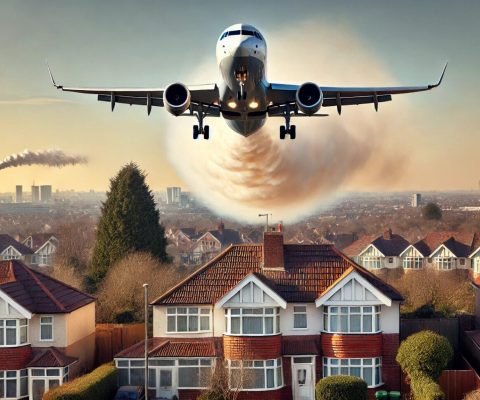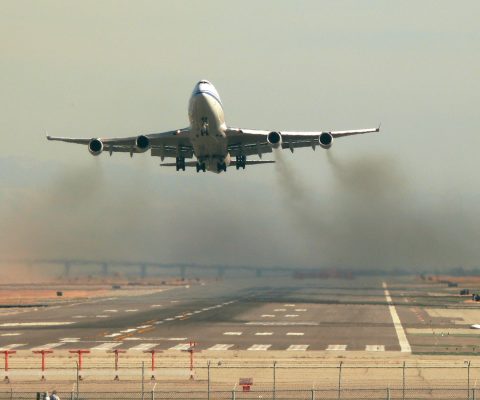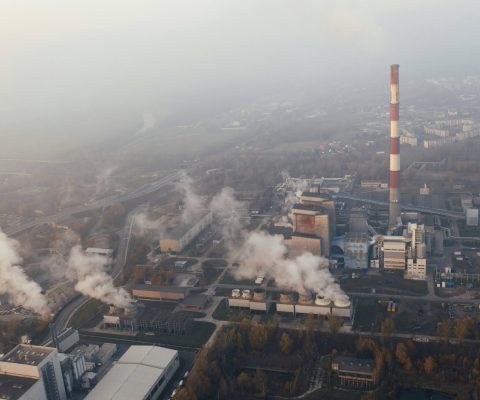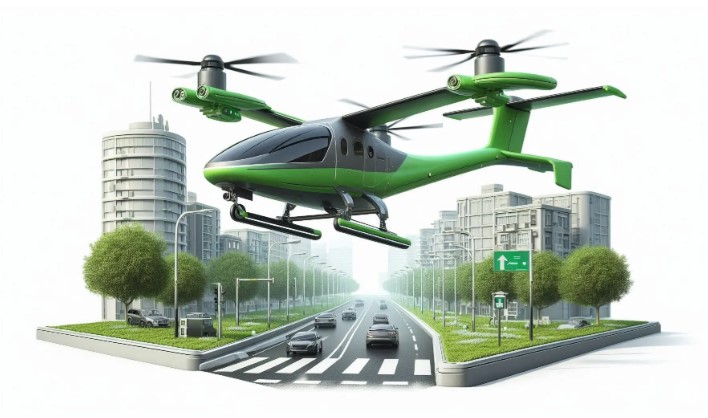Listen to the truth behind “Green” airplane initiatives
Finlay Asher, Aerospace Engineer and Co-founder of Safe Landing talks about Sustainable Aviation Fuels including Biofuels and e-fuels, and why these and Direct Carbon Capture, do not provide workable solutions, and are distracting us from policies targeting fossil fuels. (This is his talk in November 2024 to the Community Against Gatwick Noise & Emissions – CAGNE)
Some key matters raised by Finlay:
- To make enough E-Kerosene (from captured carbon) for the UK Aviation industry would require 5 times the entire output of the UK Nuclear sector or 4 times the total output of UK Wind generation – that would need an area of wind turbines larger than Northern Ireland
- German airline Lufthansa says it would need half of Germany’s electricity if it were to switch to green fuels
- Within aviation, it appears to be more efficient to tax jet fuel and fund carbon capture rather than produce e-fuel.
- Biofuels release up to 3 times the carbon of traditional fossil fuels
- Growing Corn to make Ethanol takes up 300 times the area of solar panels for the same output
- If jet fuel is 100% replaced by biofuels we’d require 300 million hectares of good cropland – that’s the size of India.
- Use of palm oil is leading to deforestation and worsening emissions
- Michael O’Leary of Ryanair says “There isn’t enough cooking oil in the world to power one day of green aviation”
- Safe Landing would prefer government money to be spent:
✓ Within the energy sector: on building out renewable capacity.
✓ Within transport sector: on (ideally public) EV ground transport.
✓ Within the aviation sector: on radically efficient aircraft designs to minimise total jet fuel burned, regardless of fuel type.
Letter from a resident that was sent to The International Civil Aviation Organisation in Montreal in Nov 2024
“We are in a serious situation facing Climate Change and must reduce carbon and other green-house gas emissions.
Aviation is one of the most energy and emissions intense activities. Aviation fuel does not have Duty or VAT applied and some smaller aircraft still use fuel containing lead. Aviation fuel must have Duty & VAT applied to dampen demand and recognise that there is evidence of some countries and individuals contributing disproportionately to emissions from air transport. Carbon inequality is evident and the current business-as-usual approach by those in leadership positions is no longer sensible. Countries with high per capita emissions are expected to make greater contributions to emission reductions.
· 11% of the world’s population travelled by air in 2018 with 4% taking international flights
· 90% of the world’s population does not fly
· 1% of the worlds population is responsible for over 50% of aviation emissions
· It is calculated that the top 10% emitters in the world account for 45% of global CO2-eq emissions while the bottom 50% of emitters contributed 13%
Aviation has largely escaped climate change measures dating back to the 1997 Kyoto Protocol, when individual countries were asked to approach the International Civil Aviation Organisation (ICAO) for measures to address the climate impact of air transport. Since then, ICAO has ruled out almost all possible measures, and when the EU agreed a global emissions trading scheme for aviation to start in 2012, it was forced by global pressure to limit it to intra-EU flights only. The result has been that aviation climate emissions have continued to grow, while other sectors have reduced their climate impact.”

Selected External Links on Climate, Health and the environment




